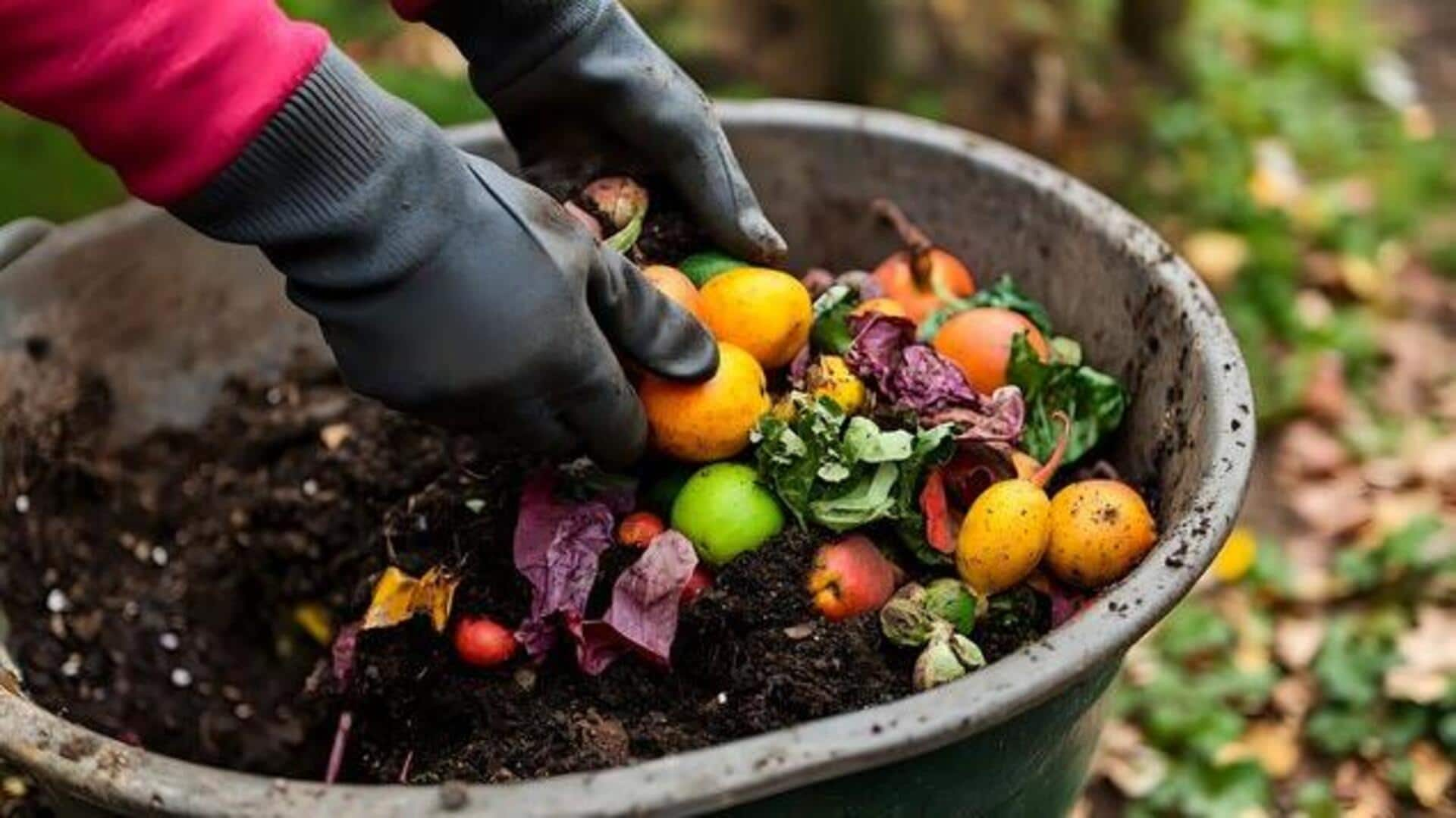
Composting made easy: 5 tips to reduce waste
What's the story
Composting is an effective way to reduce waste and enrich soil, a practice many African households have adopted for generations. By turning kitchen scraps and yard waste into nutrient-rich compost, families can improve their gardens while minimizing environmental impact. Here are five practical composting hacks that are easy to implement and cost-effective. These tips will help you create a sustainable composting system that benefits both your home and the environment.
Tip 1
Use banana peels for nutrient boost
Banana peels are rich in potassium, which is great for plant growth. Just add them to your compost pile or bin to give your plants a nutrient boost. They decompose quickly, releasing essential minerals into the soil. This hack is especially useful for those who want to enhance their garden's health without spending extra on fertilizers.
Tip 2
Coffee grounds as pest repellent
Used coffee grounds also serve as a natural pest repellent in your garden. Their strong aroma keeps away unwanted insects and pests, protecting your plants from damage. Just sprinkle the grounds around the base of plants or mix them into your compost pile. This keeps pests at bay while enriching the soil with nitrogen.
Tip 3
Eggshells for calcium enrichment
Calcium is important for plant health. By crushing them into small pieces and adding them to your compost, you can help prevent blossom end rot in tomatoes and peppers. This simple hack ensures that you make the most of kitchen waste while giving your garden a natural source of nutrients.
Tip 4
Shredded paper as carbon source
Shredded paper also acts as an excellent carbon source in composting, balancing out nitrogen-rich materials like food scraps. By adding shredded paper to your compost pile, you promote aeration and decomposition efficiency. This tip is particularly useful for those looking to recycle paper waste while improving their compost's quality.
Tip 5
Leaves as natural mulch
Fallen leaves make for an excellent natural mulch, protecting soil moisture and temperature around plants. Instead of throwing away leaves during autumn or after storms, shred them and use them as mulch or mix them into your compost pile. This not only reduces waste but also improves soil structure over time by adding organic matter.